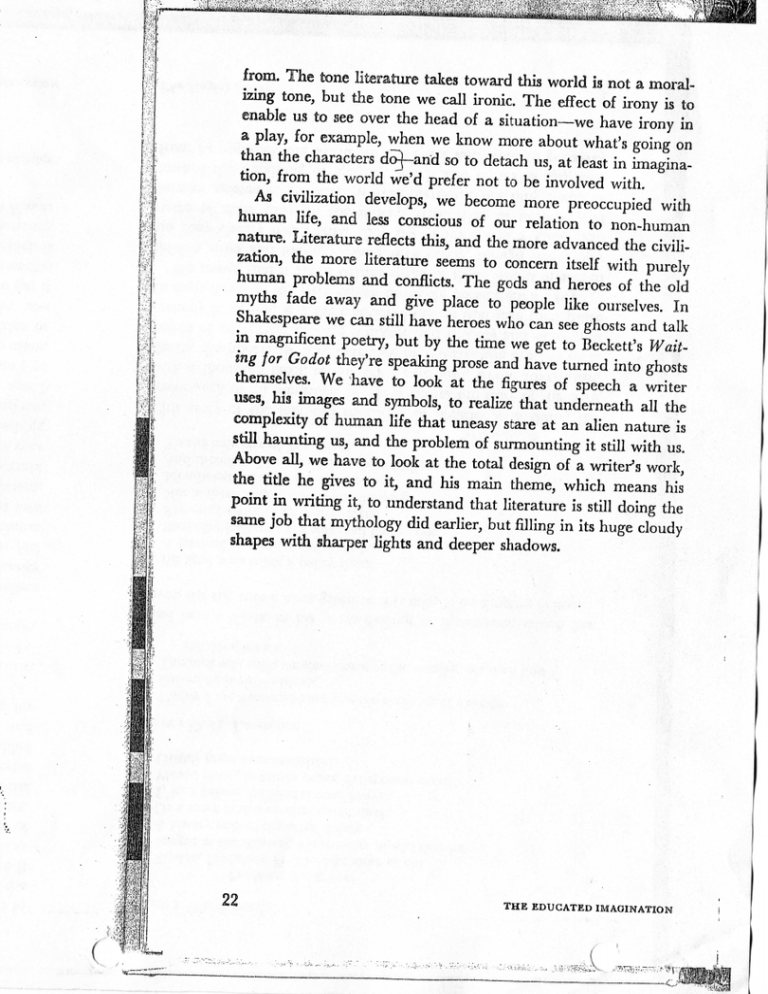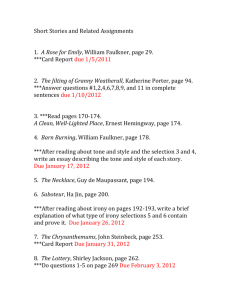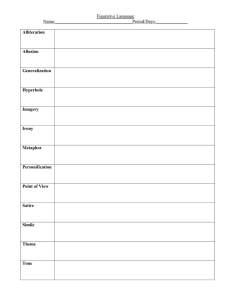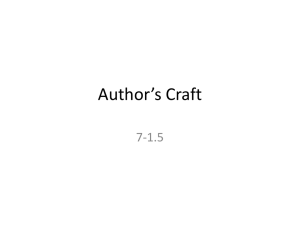from. The tone literature takes toward this world is not... izing tone, but the tone we call ironic. The effect...
advertisement

luui&iiAut from. The tone literature takes toward this world is not a moralizing tone, but the tone we call ironic. The effect of irony is to enable us to see over the head of a situation—we have irony in a play, for example, when we know more about what's going on than the characters do-j—and so to detach us, at least in imagination, from the world we'd prefer not to be involved with. As civilization develops, we become more preoccupied with human life, and less conscious of our relation to non-human nature. Literature reflects this, and the more advanced the civilization, the more literature seems to concern itself with purely human problems and conflicts. The gods and heroes of the old myths fade away and give place to people like ourselves. In Shakespeare we can still have heroes who can see ghosts and talk in magnificent poetry, but by the time we get to Beckett's Waiting for Godot they're speaking prose and have turned into ghosts themselves. We have to look at the figures of speech a writer uses, his images and symbols, to realize that underneath all the complexity of human life that uneasy stare at an alien nature is still haunting us, and the problem of surmounting it still with us. Above all, we have to look at the total design of a writer's work, the tide he gives to it, and his main theme, which means his point in writing it, to understand that literature is still doing the same job that mythology did earlier, but filling in its huge cloudy shapes with sharper lights and deeper shadows. 22 I: THE EDUCATED IMAGINATION




